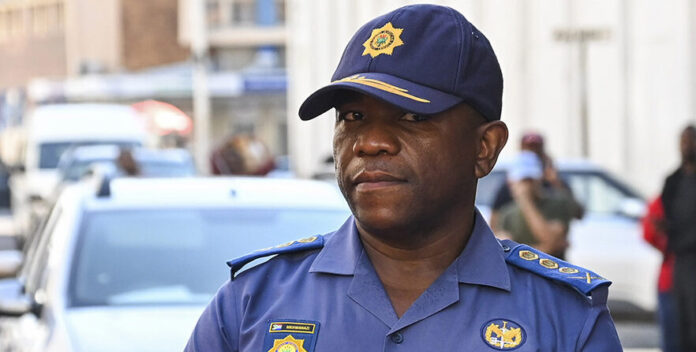Contrary to KwaZulu-Natal provincial commissioner Lt-Gen Nhlanhla Mkhwanazi’s claim that dockets from the political killings task team were “gathering dust” in the office of the Deputy National Commissioner for Crime Detection Shadrack Sibiya, an internal police report has revealed that the cases are being investigated.
Sunday World can reveal that an internal police report prepared by Maj-Gen Mary Motsepe for Sibiya suggests that the dockets were actively being investigated, albeit with significant shortcomings that have left victims’ families frustrated and justice delayed.
On January 3, the national commissioner’s office officially disbanded the task team, citing inefficiencies and a lack of progress in resolving politically motivated killings.
Sibiya reportedly communicated the decision via an email, instructing the team to submit a close-up report by the end of the month.
This marked the end of a task team that had been plagued by administrative hurdles and unresolved cases.
During a meeting on March 28, held in the head office of Crime Intelligence, senior officials, including Lt-Gen Dumisani Khumalo and Lt-Gen Hilda Senthumule, oversaw the transfer of 118 dockets under investigation to the divisional commissioner of detective and forensic services.
According to Motsepe’s report that Sunday World has seen, these dockets included cases under investigation, those pending court decisions, and others awaiting further action.
Contrary to Mkhwanazi’s claims, these dockets were not neglected but are actively being processed, albeit with significant challenges.
Among the transferred dockets were several inquest cases, which highlighted the inefficiencies of the task team.
Investigations after the disbandment of the task team revealed that suspects identified in these dockets were either not arrested or were released due to insufficient evidence.
For example, in one case, suspects were identified in a parade but were never charged. Additionally, public prosecutor instructions were allegedly ignored, further delaying progress.
The report also revealed that forensic reports remain outstanding, ballistic analyses were delayed, and cases were not enrolled due to a lack of sufficient evidence. These shortcomings have left victims’ families in anguish, with many expressing frustrations over the lack of communication and progress.
The strained relationship between Khumalo and Sibiya further complicated matters.
Sibiya wrote to Khumalo, requesting a detailed report on the progress of the transferred dockets.
In response, Khumalo admitted that the task team had failed to make significant progress, stating that “a thorough investigation was subsequently conducted during which a motive was identified and substantiated.”
However, this admission has done little to quell criticism of the task team’s performance.
The disbandment of the task team has also led to tense interactions with victims’ families. Complaints have been filed with the police ministry, with families expressing dissatisfaction over the lack of updates and the decision to transfer cases to other units.
One family member lamented: “We need answers, accountability, and justice. Anything less is unacceptable.”
The report also highlights several key statistics that underscore the task team’s struggles. Among the 118 dockets handed over, a significant portion remained unresolved.
In one notable case from Mthatha in the Eastern Cape, a murder investigation initially handled by the Serious and Violent Crimes Unit was transferred to the task team but saw little progress.
According to Motsepe’s report, an inspection revealed that the last work on the case was conducted in January 2024, leaving the victim’s family in despair.
Additionally, stated the report, three dockets under investigation from the Eastern Cape were handed over on April 23.
These cases, like many others, were plagued by delays and inefficiencies. Forensic reports were outstanding, ballistic analyses were delayed, and some cases were not enrolled due to insufficient evidence.
The disbandment of the task team has reignited calls for accountability and reform within the criminal justice system.
Critics argue that the decision to deactivate the task team without addressing its shortcomings has only exacerbated the crisis.
Mkhwanazi’s claim that the dockets are gathering dust has been disputed, but the reality remains that many cases are still unresolved.
The spotlight remains on the national commissioner Fannie Masemola’s office to ensure that the unresolved cases are not forgotten.
The disbandment of the task team may have closed one chapter, but the fight for justice is far from over.
Police spokesperson Brigadier Athlenda Mathe declined to comment, saying: “A commission of inquiry has been established to investigate all allegations made”.



